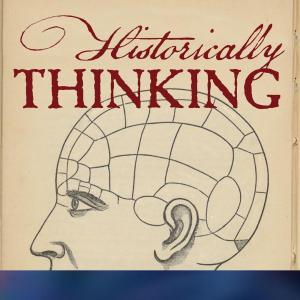Historically Thinking

Episode 275: The World the Plague Made
The pandemic of 1346–the Black Death–in some areas of Europe killed as much as 50% of the population. But this first outbreak, while the worst, was not the last. For three centuries it persisted, with at least 30 further outbreaks. Such numbers indicated that the Black Death resulted in unimaginable suffering and tragedy from which no-one was untouched. But the Black Death also brought about a cultural and economic renewal. Labor scarcity encouraged the development of new or improved technologies, like wind power, water power, and gunpowder. A growth in disposable incomes led to an increase in consumption of silks, sugars, spices, furs, gold, and slaves. It was not despite the Black Death that Europe flourished, argues my guest James Belich, but because of the Black Death. James Belich is the Beit Professor of of Imperial and Commonwealth History at the University of Oxford, and cofounder of the Oxford Centre for Global History. His books include a two-volume history of New Zealand, but his most recent book is The World the Plague Made: The Black Death and the Rise of Europe, which is the focus of our conversation today. For Further Investigation Belich's two-volume history of New Zealand is comprised of Making Peoples: A History of the New Zealanders from Polynesian Settlement to the End of the Nineteenth Century and Paradise Reforged: A History of the New Zealanders, 1880-2000 Most recently Belich wrote Replenishing the Earth: The Settler Revolution and the Rise of the Angloworld, which as he mentioned in the conversation raised many questions in his head that required him to write The World the Plague Made We've previously talked about some of the more immediate consequences of the Black Death with Mark Bailey in Episode 207: After the Black Death. Another conversation which discussed disease and history and much more besides, from a very wide perspective indeed, was with Philip Jenkins in Episode 209: Climate, Catastrophe, and Faith






 Visit Podcast Website
Visit Podcast Website RSS Podcast Feed
RSS Podcast Feed Subscribe
Subscribe
 Add to MyCast
Add to MyCast